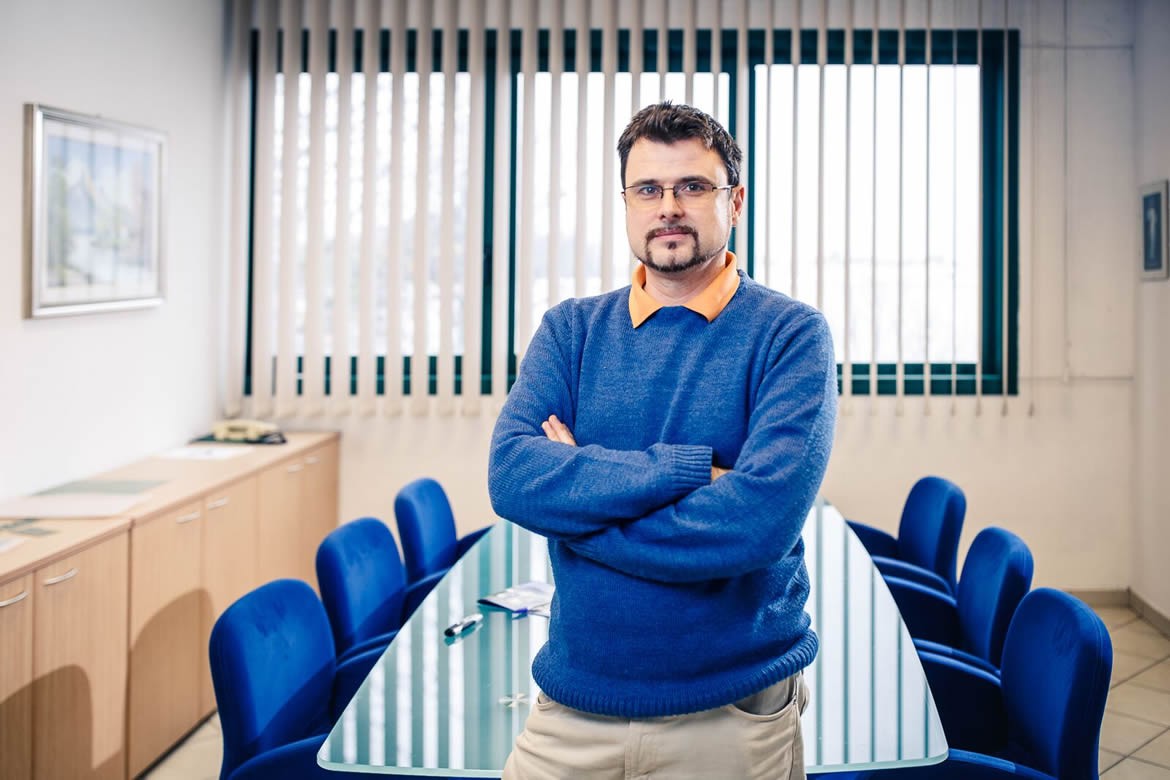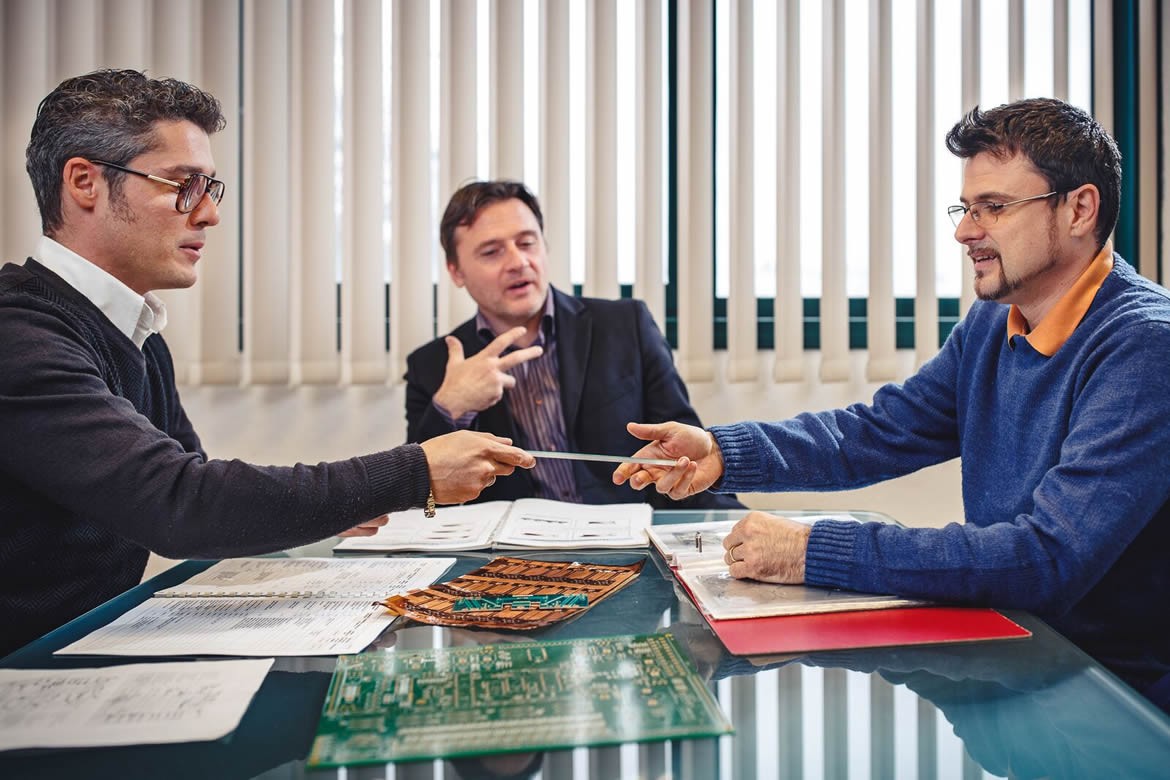Our Story
1980
On the strength of his experience in the industrial electronics sector, Gilberto Giunta, the founder of CSM, set up his first PCB production machines on a site in Fano. The aim was to harness his extensive experience to produce samples and custom products. In the 1980s, PCBs still had very large tracks, so were used to replace entire parts of electrical panels. The component assembly technologies, furthermore, were all still manual. The main competitors at the time were Japanese companies, which replicated the technologies of European and American players.
1990
Telecommunications and consumer goods became the prime focus of developments in electronics. In Italy, this was the heyday of Adriano Olivetti, SIP (later Telecom Italia), cars with electronic fuel injection, and the spread of personal computers designed for use with 64k modems for internet access. During this period, the company made substantial investments both in technology, including one of the market's first plotters (a Marconi EMMA 220), and in production capacity, to meet the demands of a market in which electronics were spreading across every sector. These sectors included domestic appliances, CNC machinery, radio and TV broadcasting masts, SIP Sirio telephones, electrical medical devices and domestic appliances with sensors. The main competitors at this time were Taiwanese companies, which had invested heavily in mass production.
In this period, CSM adopted the earliest flying probe electrical tests, stopped using chemical copper for PCB metallization and replaced it with a new, more eco-friendly technology. It also set up its first multi-layer department equipped with a Bieffebi press, which now enables the company to produce rigid-flex PCBs and custom laminates.
2000
Digitalisation was spreading rapidly across the world of communication. Internet, cable, fibre and satellite networks were connecting the entire world. Meanwhile, the EEC became the EU and adopted the single currency, countries like Italy and Spain consolidated their reputation for world-class manufacturing, and the practice of outsourcing mass production operations to eastern Europe became widespread. At the same time, China's accession to the WTO started reshaping the world of logistics and industrial production.
Against this backdrop, the founder's sons joined CSM, starting their careers in production. The company continued to produce single-sided, double-sided and multi-layer PCBs at full capacity, with a particular focus on small batches, custom production runs and innovative products.
2010
2010 marked the beginning of the decade of mobile internet access, real-time information and e-commerce. The company's goal was to consolidate its position as a reliable developer of new electronic applications. After a long period of training in production, the founder's sons took on the roles of Head of Plant and Procurement (Mirco Giunta) and Head of Sales and Finance (Giuliano Giunta). The organisation still revolves around a lean production process, which allows rapid adaptation to the differing technological characteristics of the batches of PCBs to be processed by the plants, without ever compromising on quality standards or the delivery dates agreed with customers. To achieve this degree of harmony, CSM makes use of internally engineered production programmes that connect with the market by means of traditional CRM planning channels and new networks such as the company's own PCB configurator, www.PCBSHOP.IT. This is an internally implemented e-commerce site that enables circuit diagram and master PCB designers to configure their samples, prototypes, special and custom PCBs independently by interacting directly with our PCB production facility, to determine the characteristics of the product and establish definite delivery times.
After all these years, CSM is still producing innovative electronic components at its Fano plant and generating value for all stakeholders.



